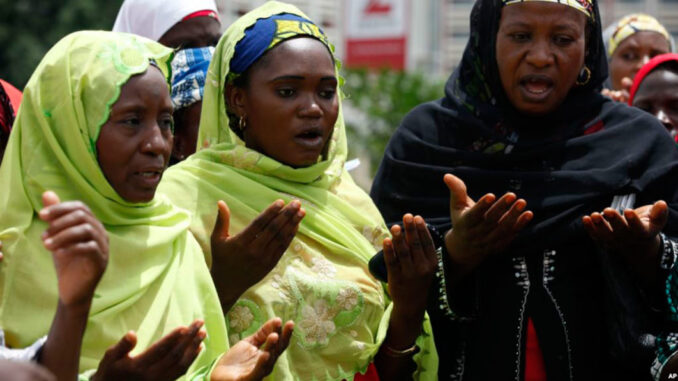
Brethren, the Prophet of Islam, (upon him be peace) is reported to have said: “The world and all things in it are valuable; but the most valuable thing in the world is a virtuous woman”. Only a couple of days ago, a colleague posted the statement below which reminded me of the fact that that day was designated as World’s Women’s Day. The statement reads: The world without Women is a world without hope”.
The above is true indeed. Women are the ‘salt’ of the world. Across times and climes, have always been subject of passionate discussions and controversies. They have been subject of scholarly and less-than scholarly researches and studies. Hardly is there a divine book in which the persona of the woman has been neglected. The woman, in Islamic hermeneutics, is so important that a whole chapter of the Quran (Surah Nisah –Chapter of Women) has-been dedicated to them not so much because of their biology or physiology but, more importantly, because a proper treatment of the “woman” in “us” is a precondition for a peaceful society – a society where she would be accorded her rights and privileges, a society where she would not be sexually objectified, a society where, in line with the Prophet’s philosophy, she would be treated like a golden jar/glass not as an iron, a dracular, an instrument of pleasure and terror.
When Sigmund Freud said: “Despite my thirty years of research into the feminine soul, I have not yet been able to answer the great question that has never been answered: What does a woman want?”, I guess Freud’s dilemma is accentuated by his refusal or inability to ask the other fundamental question: what does the man want, at least, in a woman?
In other words, Freud’s obsession with the woman subject is very much known as to warrant are capitulation here. His less than positive view of the woman finds a compeering the view of the French warrior, Napoleon Bonaparte quoted above. In other words, at the onset of the modern period in Europe and North America, arguments ensued as to whether the woman really has a soul or not. She was, consequently, considered not good enough to own a property or to vote. The circumstance of women in the West during the early modern period was a throw back to the pre-Islamic period when women were seen as chattels, as things and instruments. The woman in Arabia before the emergence of Prophet Muhammad (may Allah’s mercies and benedictions be on soul) was an invalid. She came to the world as a girl; girls during the period were fit only for the burial ground or as prostitutes.
w
During the mid-20th century, women in the modern world were given the “freedom” they so-much desired. She could now vote and be voted for; she can now own properties. She is recognized by law. The ordinary modern woman of today now considers herself not only an equal of the man but, probably, his superior. She does not consider herself a golden jar anymore. Rather she sees herself as an iron; what a man can do she can do more. Thus our women today have become tired of being women. Or rather, some women now consider it a cosmic error for them to have been created as women. This is the reason for the recent boom in transgender medicine in the West. In American, men are becoming women the same way women are becoming men. The home for the woman today has become completely unhomely.
Within Muslim societies, at least two perspectives to women issues are discernible: the positive and the negative. Men who have positive notions of the woman treat her in accordance with the Quran. He sees his wife, not inline with Napoleon’s notion but as a partner. He would give his daughters the best of education, which his son would enjoy. He would facilitate spiritual progress and growth of and for his wife. Such men among Muslims work with the Quranic injunctions which says: “Whoever works righteousness, man or woman, and has faith, verily to him will We give a new life that is good and pure, and We will bestow on such their reward according to their actions.” (Quran 16:97; 4:124). Such men among Muslims relate to women in the Prophetic way: the mirror of her society, the soul of the nation. In her absence the man is incomplete; in her presence the world illuminated and strengthened. An anonymous writer once said:“Sure God created man before woman. But then you always make a rough draft before the final masterpiece”!
Afis Ayinde Oladosu is a professor of Middle Eastern, North African and Cultural Studies,Dean, Faculty of Arts,
University of Ibadan, Nigeria


Be the first to comment